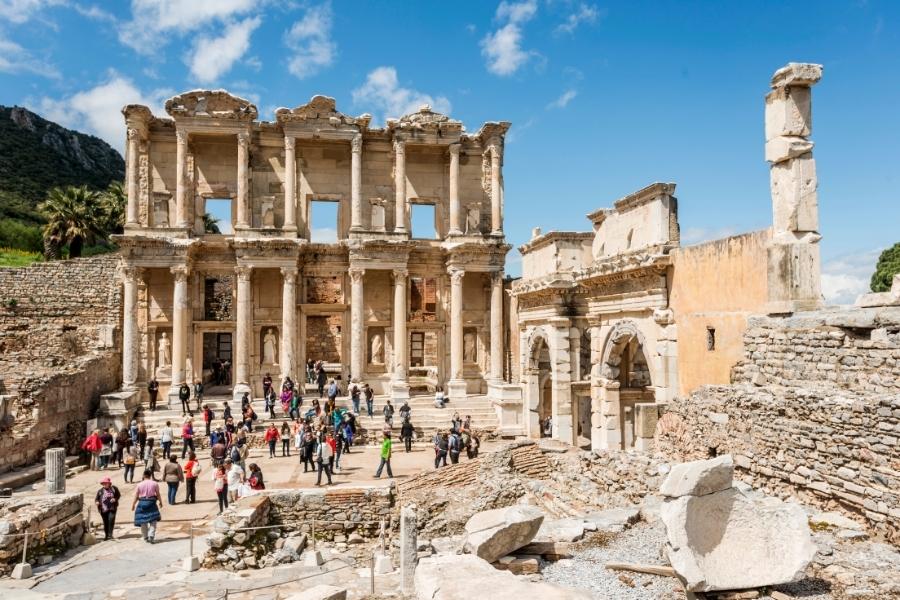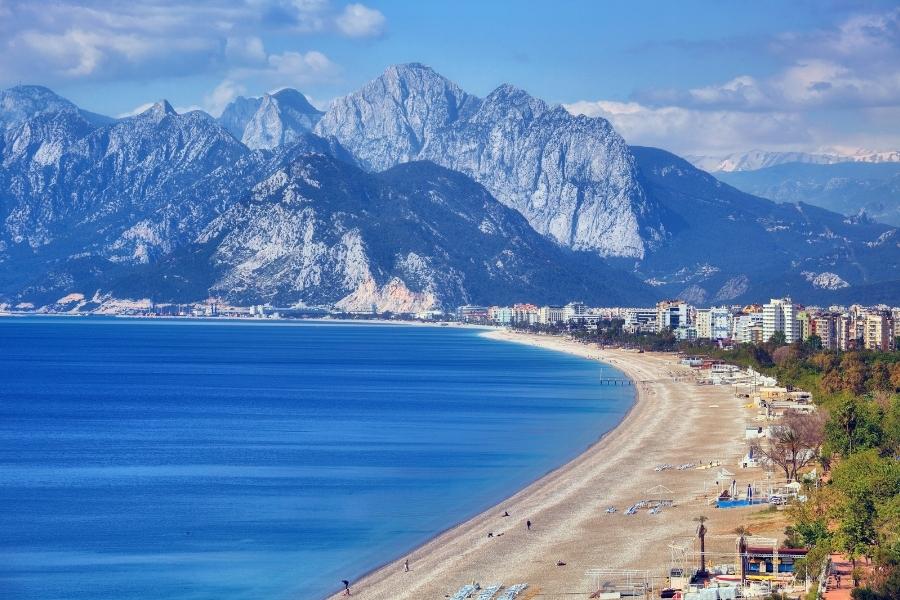10 Things You Must See in Ephesus: Top Attractions Guide
The Complete Guide to Ephesus: Embark on an Epic Journey
When you picture Turkey, it’s likely the bustling streets of Istanbul that come to mind. But let’s shift gears and head to Ephesus, a city brimming with history that whispers tales of the past. Its intricate architecture and stunning landscapes make it a must-visit on any Turkish adventure. So, are you ready to discover the 10 Things You Must See in Ephesus? Buckle up and let’s get started!
Experience the highlights of Ephesus affordably with One Nation Travel’s tours, complete with local guides for an enriched, authentic exploration.
1. The Grand Theatre of Ephesus
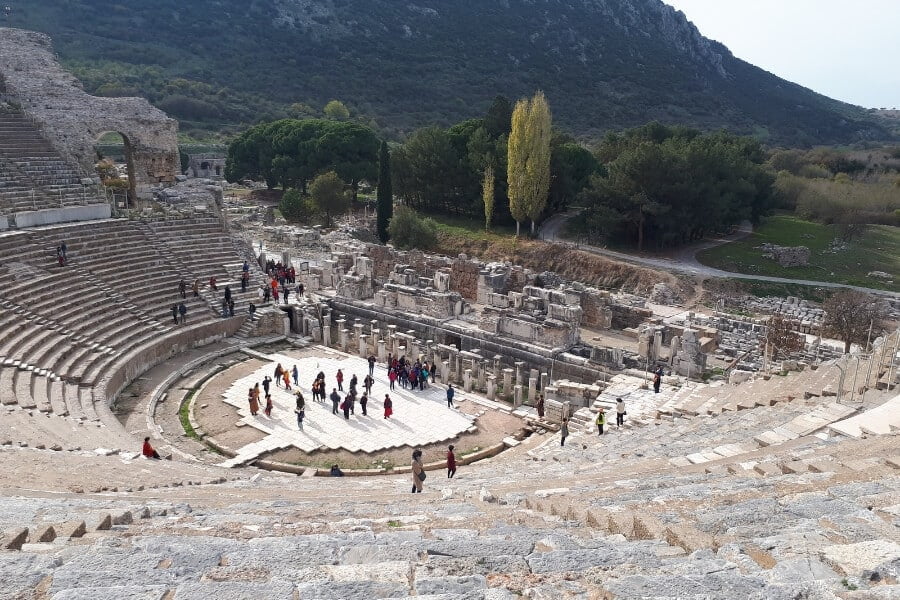
A Spectacle to Behold
Imagine a mammoth structure capable of accommodating over 24,000 spectators! Ephesus’s Grand Theatre, known as the Great Theatre, is just that. It’s not just a sight for sore eyes but a marvel of ancient engineering. This grand structure, with its magnificent facade, will leave you spellbound.
Architectural Brilliance
Designed in the Hellenistic period, the Grand Theatre has stood the test of time, making it one of the most popular sites in Ephesus. Every aspect of its design, from the 66 rows of seats divided into three horizontal sections to the semicircular orchestra space, showcases the architectural prowess of the era.
A Stage for History
Apart from hosting dramas and gladiatorial combats, this theatre also played a crucial role in shaping Ephesian history. It was the stage for the famed ‘Riot of the Silversmiths’ mentioned in the New Testament. When you walk into the theatre, you’re stepping into a scene from the past.
2. Celsus Library
An Ancient Knowledge Hub
Next up on our journey is the iconic Celsus Library, a symbol of Ephesus’s intellectual and cultural prowess. As the third-largest library of the ancient world, it held over 12,000 scrolls. A visit to this library will surely kindle your inner historian.
Memorial to a Roman Senator
Constructed in 117 AD, this library is a tribute to Roman Senator Tiberius Julius Celsus Polemaeanus. The four statues at the entrance represent wisdom (Sophia), knowledge (Episteme), intelligence (Ennoia), and virtue (Arete). These embody the qualities admired by Celsus, and their prominence underscores the library’s educational importance.
A Masterpiece of Restoration
After an earthquake destroyed it in 262 AD, the library underwent a careful restoration, retaining its original splendor. It remains a perfect example of how restoration can help us appreciate our rich past.
3. Temple of Artemis
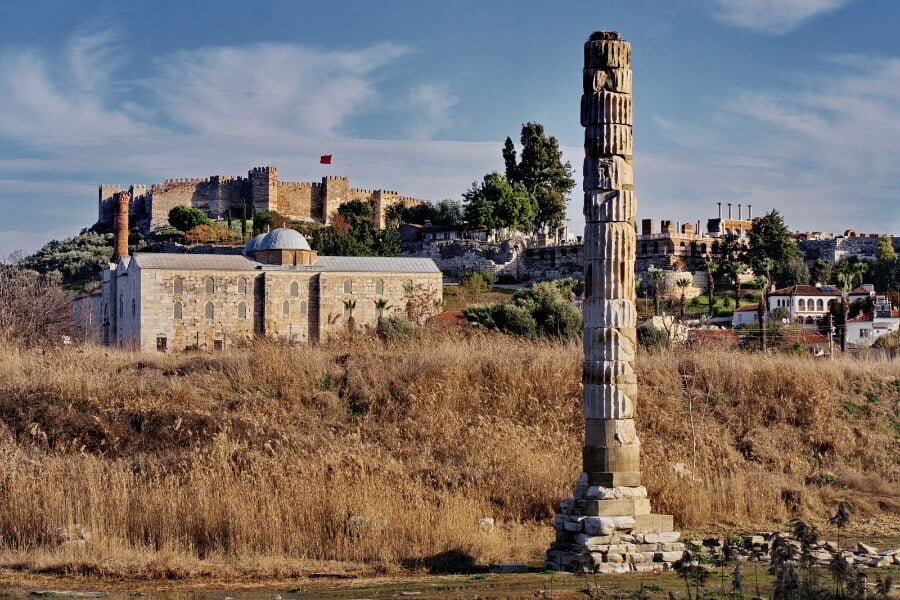
One of the Seven Wonders
Considered one of the Seven Wonders of the Ancient World, the Temple of Artemis stands as a testament to Ephesus’s historical and religious significance. Although only a single column remains, the temple’s grandeur can still be imagined.
The Goddess’s Sanctuary
Dedicated to the Greek goddess Artemis, the temple was not just a place of worship, but also a marketplace and a religious and political meeting ground. Its significance was such that Artemis’s symbol, the bee, was used on Ephesian coins.
A Glimpse into the Past
Today, the remnants of the temple still command attention. As you stroll around, let your mind wander back to the times when the temple was in its full glory.
4. Terrace Houses
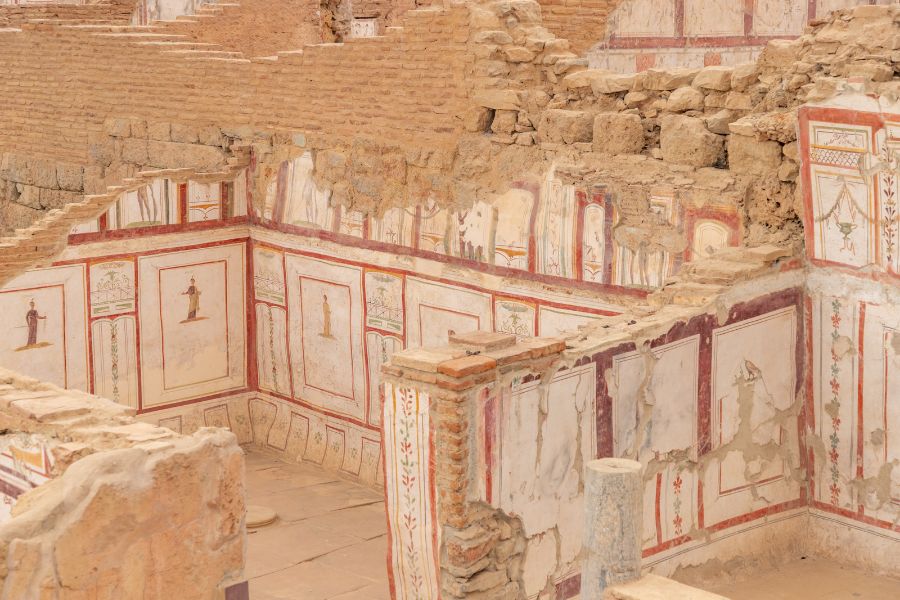
Luxury in Antiquity
For a peek into the luxurious lives of Ephesian elites, make sure to visit the Terrace Houses. These houses, decorated with beautiful mosaics and frescoes, offer a snapshot of the rich domestic culture of Ephesus.
Architectural Ingenuity
Notice the complex heating systems and indoor plumbing, indicators of the advanced lifestyle enjoyed by the inhabitants. These houses are a fascinating window into the ingenious minds of ancient architects.
The Houses of the Powerful
From the houses’ elaborate decorations and architectural sophistication, it’s clear they were occupied by Ephesus’s most influential figures. Wandering through these homes will give you a unique perspective on the city’s social hierarchy.
5. Ephesus Archaeological Museum
Preserving Ephesus’s Treasures
No visit to Ephesus would be complete without a trip to the Ephesus Archaeological Museum. The museum houses a vast collection of artifacts unearthed from Ephesus and the surrounding areas.
Highlights of the Museum
Don’t miss the statue of Artemis Ephesia, an artifact that symbolizes the city’s spiritual life. The collection of Ephesian coins offers a glimpse into the city’s economic past.
A Learning Experience
The museum not only displays artifacts but also provides historical and cultural context, making your visit both educational and entertaining.
6. Basilica of St. John
A Pilgrimage Site
Constructed over the tomb of St. John the Apostle, this basilica has been a pilgrimage site for centuries. It’s an important location for both historical and religious exploration.
Majestic Architecture
Despite the ruins, the basilica’s grand architecture, which once boasted six domes, is evident. The frescoes and mosaics add an artistic touch to the spiritual journey.
St. John’s Final Resting Place
The basilica holds an elevated tomb believed to be St. John’s final resting place. This makes it a must-visit for anyone interested in early Christian history.
7. House of Virgin Mary
A Holy Shrine
Located on Mt. Koressos, the House of the Virgin Mary is believed to be where Mary spent her last days. This modest stone house is now a popular Christian and Muslim shrine.
Fountain of Miracles
Next to the house, there’s a fountain believed to have healing powers. Many visitors leave their prayers on the nearby wall, creating a tapestry of hope and faith.
A Place of Peace
Regardless of your religious beliefs, the serene atmosphere of the House of Virgin Mary offers a peaceful respite from the busy world outside.
8. The Ephesus Gate
A Grand Entrance
Standing at the entrance of Ephesus, this gate sets the tone for your historical adventure. Its grandeur and detailed carvings make it a landmark you can’t afford to miss.
Symbol of Ephesus
The Gate is more than just a grand entrance; it’s a symbol of the city’s rich past and monumental architecture.
A Sneak Peek of What’s Inside
Standing at the Ephesus Gate, you get a sneak peek of the architectural wonders that await you inside.
9. Ancient Agora
Heart of the City
In ancient times, the Agora was the beating heart of Ephesus, a hub for political, commercial, and social activities. Today, it’s a maze of columns and ruins, narrating tales of bustling marketplaces and heated political discussions.
Structure of the Agora
The ruins consist of several shops, offices, and a central courtyard, offering insight into the ancient marketplace’s layout.
Walking Through History
As you navigate the Agora, you’ll find yourself walking in the footsteps of ancient Ephesians, experiencing a slice of their daily life.
10. Arcadian Way
The Ancient Street
The Arcadian Way, connecting the harbor to the Great Theatre, was once the most important street in Ephesus. Lined with statues, columns, and shops, this marble-paved street is a testament to Ephesus’s vibrant city life.
A Scenic Route
This wide, colonnaded street offers a picturesque walk that leaves you imagining the grand processions that once passed through.
A Trip Back in Time
A stroll down the Arcadian Way is a trip back in time. As you walk, you’ll feel the pulse of Ephesus as it once was: alive, bustling, and magnificent.
Frequently Asked Questions
1. How do I get to Ephesus?
Ephesus is easily accessible by road from Selçuk, which is well connected to other major Turkish cities by bus and train.
2. What is the best time to visit Ephesus?
The best time to visit Ephesus is during the spring (April to June) or fall (September to November) when the weather is pleasant.
3. Are there guided tours available?
Yes, guided tours are available. They offer a detailed explanation of the history and significance of various sites.
4. Is Ephesus safe for tourists?
Yes, Ephesus is safe for tourists. However, like any other tourist destination, it’s always wise to stay vigilant about your belongings.
5. How much time do I need to explore Ephesus?
You need at least a full day to explore Ephesus and truly appreciate its historical and cultural wealth.
6. Are there facilities for food and water in Ephesus?
Yes, there are several restaurants and stalls around Ephesus where you can buy food and water.
Conclusion
With its grand theatres, beautiful temples, luxurious houses, and bustling streets, Ephesus is more than just a historical site—it’s a journey back in time. Each stone whispers tales of a grand past, a civilization that was ahead of its time. From the Grand Theatre to the Arcadian Way, the 10 Things You Must See in Ephesus promise an unforgettable experience. So, when are you packing your bags for this journey through time?

